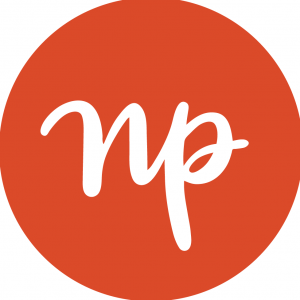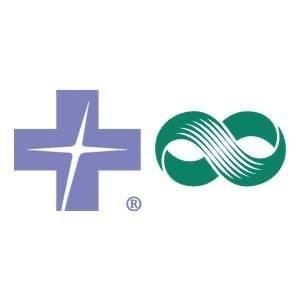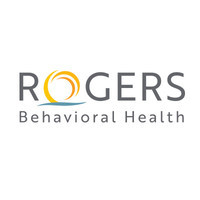The registered nurse (RN, RN II, RN III) performs professional nursing activities in the care of patients so they may achieve or regain, and then maintain, maximum physical, emotional or social functions. Role functions are governed by the Nurse Practice Act, the Administrative Code (in the state of employment), as well as the professional standards for nursing practice, and the corresponding policies and procedures of Rogers Memorial Hospital (Rogers). The registered nurse seeks consultation with other members of the health team as the patient’s condition and treatment goals warrant. He/She, in conjunction with the Patient Accounts department, provides patient information to ensure compliance with federal and state statutes.
Job Duties & Responsibilities:
- Complete initial assessments and documents as required.
Collect, record, and analyze, within prescribed timeframe, pertinent data for admission
assessment according to Hospital policy, including:
- Patient strengths and limitations that can be addressed in reaching health goals.
- Cultural, spiritual, and ethnic factors that may impact on patient’s course of treatment.
- Patient needs that are to be addressed at discharge.
- Medical/physical status.
- History of medication compliance, reactions, and current schedule; and
- Age-specific data regarding the patient’s individual needs.
Involve patient’s support systems (family, friends) in assessment and documentation
- Observe and document the patient’s interaction with family and friends as it is pertinent to the patient’s treatment.
- Obtain assessment data from support systems, when appropriate, regarding the patient’s history and individual needs.
Act as an advocate for patients
- Explain patient’s rights so they can understand and obtain appropriate signatures.
- Provide the patient with information and obtain their signature on necessary consents.
- Act as a patient advocate, use knowledge of patient rights and responsibilities, and protect patient’s privacy and confidentiality.
- Assist in patient orientation process.
- Know and employ Hospital policies and procedures regarding unit safety, the necessity of gown/contraband search on admission, and carry out the process in a respectful manner.
- Remain sensitive to individual patient/family stressors upon admission while providing pertinent unit information.
Initiate and update treatment plan and documentation as required
- Participate in planning and modifying the patient’s plan of care.
- Evaluate data obtained by others by reviewing patient’s treatment plan and multi-disciplinary assessment for assigned patients.
- Participate in care conferences (staffings) and represent the nursing care component of the treatment plan to others at the staffing.
- Develop and interpret plan of care with the patient/family, updating it as indicated.
- Write clear, concise, and obtainable treatment goals on the treatment plan for each problem.
- Review the treatment plan as goals are achieved, changed, or updated.
On an ongoing basis, identify, interpret, and document information collected in nursing interview, observation, physical assessment and diagnostic data, and confer with other health care professionals, as appropriate
- Review current lab data and follow-up with doctor.
- Evaluate potential for falls and initiate fall precautions, as indicated.
- Identify potential for self-abuse, suicidality and/or assaultive behavior.
- Develop age-appropriate interventions for the patient’s plan of care.
- Assess changes in patient status and document interventions accordingly.
Implement patient care
- Demonstrate safe and correct medication administration by:
- Accuracy in medication administration: right patient, right medication, right dose, right time, and right route.
- Maintaining current knowledge of the medication’s purpose and effects for each patient, as demonstrated by correct documentation of medication, as well as observations about responses to medication.
- Accurately transcribing and implementing physician medication orders.
- Maintaining a continual awareness of monitoring the expected and unexpected medication efforts including adverse drug reactions, drug/drug or drug/food interactions, or other unexpected consequences of the medication.
- Regularly conducting and documenting patient education about medications.
- Maintaining current knowledge about new pharmacologic products, including new medications or medications with new uses/therapeutic action.
Additional Job Description:
Education/Training Requirements:
- Bachelor’s degree in nursing (BSN) preferred. Registered nurse licensed by State Board of Nursing in the state of employment. License must be in good standing with the State Board of Nursing in the state of employment. Preferred States of licensure are WI and MN
- American Health Association Healthcare Provider CPR certification or is required within thirty (30) days of date-of-hire. Bi-annual re-certification is required.
- Formal training in management of the aggressive patient is required within sixty (60) days of date-of-hire. Annual re-certification is required.
- Previous psychiatric experience with children, adolescents and adults is preferred.
- At the Hospital’s discretion, may be required to hold a qualified medical professional (QMP) designation. Must be deemed competent to serve as a QMP, as outlined in the Medical Staff bylaws of Rogers Memorial Hospital. This designation is evaluated and potentially renewed at least annually, based on results of the QMP job competency.
- Employees at the Child/Adolescent Day Treatment programs licensed under HFS §40 are required to have either training in psychiatric nursing, including training in work with children with mental health disorders, or one (1) year of experience working in a clinical setting with these children.
The System also includes Rogers Behavioral Health Foundation, which supports patient care, programs, and research; and Rogers InHealth, an initiative that works to eliminate the stigma of mental health challenges.
https://rogersbhfoundation.org/
EOE/MFDV
Equal Employment Opportunity and Affirmative Action – Rogers Behavioral Health (rogersbh.org)
With a career at Rogers, you can look forward to a Total Rewards package of benefits, including:
- Health, dental, and vision insurance coverage for you and your family
- 401(k) retirement plan
- Employee share program
- Life/disability insurance
- Flex spending accounts
- Tuition reimbursement
- Health and wellness program
- Employee assistance program (EAP)
Through UnitedHealthcare, UMR and HealthSCOPE Benefits creates and publishes the Machine-Readable Files on behalf of Rogers Behavioral Health.To link to the Machine-Readable Files, please visitTransparency in Coverage (uhc.com)









